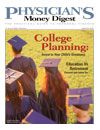Disclaim Your Way to Lower Estate Taxes
It is often said that the only two things certain inlife are death and taxes. However, in the world ofestate taxes, very little is certain. Let's say youhave a $4 million estate. If you die this year or next,$2.5 million of your estate will be subject to estatetaxes of as much as $1,000,000. But wait, if youwere to die in 2006, 2007, or 2008, only $1.5 millionwould be subject to the tax, saving you over$400,000. If you could just hang on until 2009, only$500,000 of your estate would be subject to theestate tax. Or, if you manage to remain alive until2010, there would be no estate taxes, no matter howlarge your estate. Unfortunately, if you die after2010, everything you own above $1 million will besubject to estate taxes at rates as high as 55%. Talkabout making it complicated to plan effectively.
Inheritor Planning
What is needed is the ability to give our heirs somemaneuvering room after we die. You can do this withthe use of disclaimers and some careful strategicplanning. If you are a beneficiary or inheritor underan estate, you have the right to disclaim all or a portionof the assets left to you and the assets that wouldotherwise be payable to you pass to the next personin line as if you had predeceased them.
Here is where planning becomes important. Youwill need to carefully think through who the line ofsuccessor inheritors will be. For example, your willcould make your spouse the beneficiary of your entireestate with your children as the next in line and yourgrandchildren as the final beneficiaries. This is called acascading beneficiary plan. At your death your spousecould decide, based on the then-relevant tax laws andcircumstances, how much of your estate they wantedto receive. If they chose to disclaim all or a portion ofyour estate, that portion would then pass to your children.Your children would each then have an opportunityto disclaim all or a portion of their share, whichwould then pass to their children. This strategy wouldallow your spouse to take only what they needed fromyour estate and pass the remainder to the children,thus reducing estate taxes at your spouse's death.
Tax-free Trust
Because of the changing nature of federal estate taxlaws, the ability to use disclaimers can also provideflexibility for the surviving spouse regarding the creditshelter trust. This trust, sometimes referred to as thefamily trust or bypass trust, is set up in your will, typicallyfor the purpose of receiving the tax-free estateamount. By using this trust rather than an outrighttransfer to your spouse, you avoid the estate tax onthose assets due on your spouse's subsequent death.
Since the tax-free amount is changing over thenext 7 years, you could leave your entire estate toyour spouse with a credit shelter trust as the secondarybeneficiary. This would allow your survivingspouse to decide how much to disclaim in favor ofthe credit shelter trust and therefore exercise morecontrol over the tax issues. It should be noted thatyour spouse could be a beneficiary of the trust as wellas the trustee, meaning they can use the trust for theirfinancial support while avoiding estate taxes on theproceeds at their death.
, is the founder of the Welch Group,
LLC, which specializes in providing fee-only wealth management
services to affluent retirees and health care professionals throughout
the United States. He is the coauthor of J.K. Lasser's New Rules
for Estate and Tax Planning (John Wiley & Sons, Inc; 2001). He welcomes
questions or comments at 800-709-7100 or visit www.welchgroup.com.
This article was reprinted with permission from the Birmingham Post Herald.
Stewart H. Welch III, CFP®, AEP
